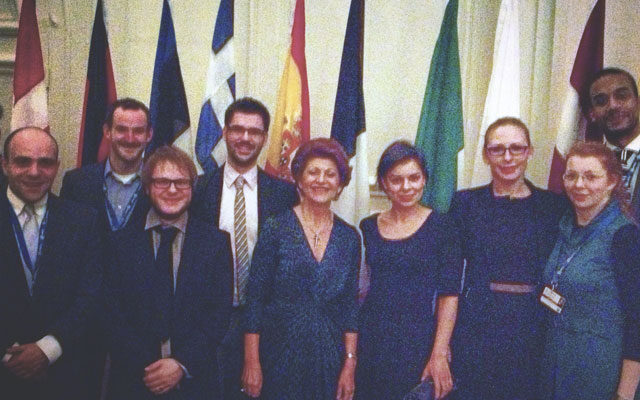
The dangers of university ranking systems
DUBLIN – The European Students Union (ESU) hopes that the European Commission’s attempt to develop a multidimensional ranking system for higher education institutions called U-Multirank will avoid the pitfalls of traditional ranking systems, such as doing damage to the social dimension of higher education. ESU has been strongly opposed to putting a greater focus on marketization and commodification of higher education, as under traditional ranking systems the rise and fall of the reputation of certain institutions leaves space for making adjustments to funds and tuition fees.
“U-Multirank will be a very important tool. It has the potential to become either relevant for students to be able to take an informed decision by promoting the diversity of the European Higher Education Area or to contribute to the marketization and commodification of higher education. Our responsibility, as students, is to contribute to the first and never allowing the second one to happen,” says Fernando M Galan, a member of ESU’s Executive Committee.
Universities can be left out
Recent studies have shown that a majority of the world’s universities are left out of the equation in traditional ranking systems, due to the fact that they have adopted methodologies that only address the top research universities globally. The European Commission has then addressed the problems arising in traditional rankings by designing and testing the multidimensional global university ranking system U-Multirank, presented in a final report in 2011.
Students have to contribute
ESU’s Executive Committee has decided to be involved as stakeholders in the European Commission’s attempt to shed some light on the problems arising in traditional rankings by providing it with advice and taking part in consultation meetings. A delegation of students attended the presentation by the European Commission on 30 and 31 January under the Irish presidency to the European Council. The delegation actively brought attention to the concerns that students had about U-Multirank and how they would like it to be developed.
“Rankings will never be able to reflect the quality of, or students’ real experience of, higher education. The attempt however, to create a multidimensional system as an alternative to today’s rankings, is welcomed. In order for U-Multirank to have a chance to fulfil its purpose as a transparent and relevant information tool for students to make informed decisions on, it is crucial that we, the students, remain deeply involved in deciding on indicators,” says Erik Arroy, Chair of the National Union of Students in Sweden (SFS) that took part in the meeting as a part of ESU’s delegation.
Please visit the following websites for more information:
http://europa.eu/rapid/press-release_IP-13-66_en.htm

— END —
For more information, please contact:
Karina Ufert, ESU Chairperson: +32/473.669.892 // karina@esu-online.org or Robert Hlynur Baldursson, ESU Communications Manager: +32/473.669.894 // robert@esu-online.org

The European Students’ Union, headquartered in Brussels, is the umbrella organisation of 47 national unions of students from 39 European countries. ESU represents and promotes the educational, social, economical and cultural interests of students at the European level. Through its member unions, ESU represents over 11 million students in Europe. To find out more about ESU, follow us on Twitter @ESUtwt, check out or Facebook page or visit www.esu-online.org. ESU celebrates its 30th anniversary in 2012.
